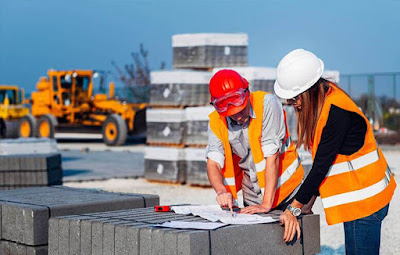How To Choose The Best Welder for Your Next Metal Project
When it comes to metalworking, you should always be prepared. It doesn't matter if you're new to the scene or an experienced welder looking for a new machine; it's always good to know your options and have them on hand when you need them most! In this article, I'll walk you through the steps of the best affordable welder hiring service for your next project by explaining which factors can make or break your decision (and why).
Top 4 To Choose The Best Welder for Your Next Metal Project
What kind of metal project will you be working on?
- The type of metal project you are working on will determine the type of welder you need. If you're planning on doing welding with steel, aluminium or stainless steel, then a MIG welder is likely your best bet. However, if you'll be working with copper, brass and bronze, then stick to TIG welders as they'll produce high-quality results while also preventing contamination from melting fluxes that can damage or ruin other metals.
- It's important to consider what type of metal projects you'll be taking on before welder hiring.
- Because not all welders are created equal, there are many factors to consider when determining which one fits your needs best. For example: Do you need something for home use? Or do some industrial work? If so, then perhaps an industrial model would make sense instead-but. If not, then keep reading because there's still plenty more information ahead!
What kind of welding machine are you looking for?
Welding machines are categorized into two main types based on the kind of metal they can weld. MIG (inert metal gas) welders are best for thin sheets of metal, such as sheet metal or thin-gauge steel plates. TIG (inert tungsten gas) welders are used for welding thick metals like plates and heavy gauge steel.
Flux core (FCAW) and stick welding machines are designed for welding thinner materials; both use a consumable electrode that's inserted through a spool or gun, which allows you to move quickly from one area to another without having to stop and change out equipment every time you want to make a different type of weld.
How heavy and bulky is the welded material?
Whether your material is heavy or compact will also have an impact on which welder you choose. If your material is bulky and heavy, you'll need a more powerful welder to handle it. If it's lighter and more compact, you can get away with using a less powerful machine.
How often will you be using your welder?
The first thing you'll want to think about is how often you will be using your welder. Will it be used mostly for personal projects, like repairs around the house or making simple metal furniture? Or are you looking for something that can be used by a shop full of employees on a daily basis, with heavy-duty parts and processes?
The answer here could affect many other aspects of your decision-making process. For example: if you're working with more time constraints and/or have specific production needs for whatever it is that requires welding, then maybe a smaller machine isn't going to work out as well for your needs. If this isn't something that applies to you at all, then maybe it's okay if yours has fewer features or doesn't look quite as fancy as some others might offer.
Conclusion
And there you have it! We hope this article has helped you to make an informed decision when welder hiring. Good luck with your project, and happy welding!




Comments
Post a Comment